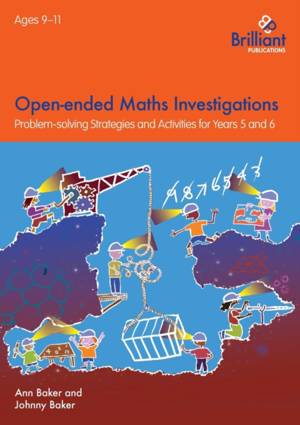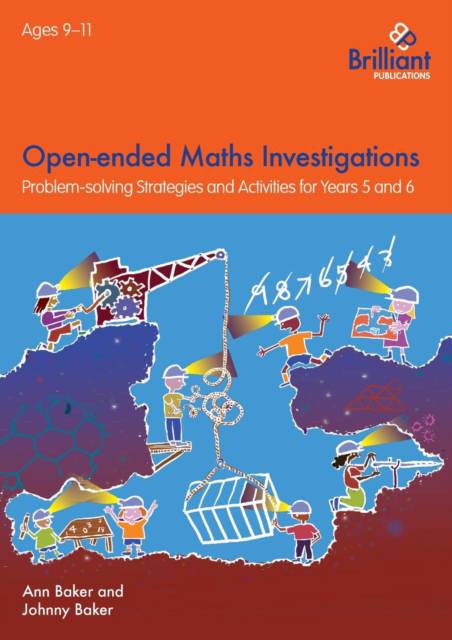
- Retrait gratuit dans votre magasin Club
- 7.000.000 titres dans notre catalogue
- Payer en toute sécurité
- Toujours un magasin près de chez vous
- Retrait gratuit dans votre magasin Club
- 7.000.000 titres dans notre catalogue
- Payer en toute sécurité
- Toujours un magasin près de chez vous
Open-ended Maths Investigations for 9-11 Year Olds
Problem-solving Strategies and Activities for Years 5 and 6
Ann Baker, Johnny BakerDescription
Learning to solve problems is a crucial part of mathematics education as, when children grow up, they will be presented with situations that require them to be able to solve mathematical problems, such as: How much will I need to pay if we divide this bill by four? What if David had two drinks and I didn't have a starter, then how much should we each pay? How many tins of paint will I need to buy to paint my bedroom? Which bank account gives the best interest?
It is not just enough to learn to add, subtract, multiply and divide. Children need learn to solve problems: they need to learn to break down problems into simpler steps; they need to identify which operation(s) is needed to solve the problem; and they need to learn to persevere, as the solution isn't always immediately apparent.
So, in short, the best way to learn to solve problems is by solving problems!
The activities in the Open-ended Maths Investigations series encourage pupils to apply higher order mathematical strategies creatively and effectively. The investigations become increasingly complex as you progress through the series, enabling pupils to develop proficiency in a wide range of problem-solving strategies.
The investigations are designed to allow pupils to bring their own thinking and learning strategies to the task. Some pupils will work systematically and logically. Some will draw pictures to make sense of situations and yet others will plunge in using a trial and error approach, fixing up and mistakes and refining their thinking as they go along. Pupils will benefit from seeing the different ways of approaching problems and discussing and comparing their methods with those of their peers.
The Open-end Maths Investigations can be used in isolation, in sequence or dipped into as teachers require, providing a great supplement to every maths scheme of work.
Spécifications
Parties prenantes
- Auteur(s) :
- Editeur:
Contenu
- Nombre de pages :
- 58
- Langue:
- Anglais
Caractéristiques
- EAN:
- 9781783171866
- Date de parution :
- 16-10-15
- Format:
- Livre broché
- Format numérique:
- Trade paperback (VS)
- Dimensions :
- 210 mm x 297 mm
- Poids :
- 163 g







